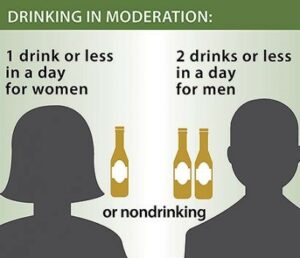May 09, 2023 by EMPWellness Admin
HARMS AND BENEFITS OF ALCOHOL CONSUMPTION
Although alcohol can make a person feel happy, pleasant, and sociable in short periods of time, excessive or chronic, long-term drinking can lead to alcohol dependence or alcohol addiction. Chronic alcohol use is also associated with other cognitive and mental health issues, including problems with learning or memory as well as exacerbating or causing serious mental health issues like depression and anxiety.
Alcohol doesn’t just affect the mind; it also affects the body. Evidence suggests that even drinking within recommended limits may increase a person’s overall risk of death from various causes, such as from several types of cancer and certain forms of cardiovascular disease.
Drinking too much can harm your health and drinking was responsible for 1 in 5 deaths among adults aged 20-49 years.
What are the benefits of 14 days without alcohol?
In general, you may start to experience physical benefits such as increased energy, reduced anxiety, and improved liver health. You might also notice positive changes in your personal life, such as improved relationships and more free time for hobbies.
What is a standard drink?

Females : Up to one drink per day, or no more than three drinks on any single day, and no more than seven drinks per week
Males : Up to two drinks per day, or no more than four drinks on any single day and no more than 14 drinks per week.
Excessive drinking includes binge drinking, heavy drinking, and any drinking by pregnant women or people younger than age 21.
Short-Term Health Risks 0f excessive alcohol use:
Injuries, such as motor vehicle crashes, falls, drownings, and burns.
Violence, including homicide, suicide, sexual assault, and intimate partner violence.
Alcohol poisoning, a medical emergency that results from high blood alcohol levels.
Risky sexual behaviors, including unprotected sex or sex with multiple partners. These behaviors can result in unintended pregnancy or sexually transmitted diseases, including HIV.
Miscarriage and stillbirth or fetal alcohol spectrum disorders (FASDs) among pregnant women.

Long-Term Health Risks of excessive alcohol use:
High blood pressure, heart disease, stroke, liver disease, and digestive problems.
Cancer of the breast, mouth, throat, esophagus, voice box, liver, colon, and rectum.
Weakening of the immune system, increasing the chances of getting sick.
Learning and memory problems, including dementia and poor school performance.
Mental health problems, including depression and anxiety.
Social problems, including family problems, job-related problems, and unemployment.
Alcohol use disorders, or alcohol dependence.
By not drinking too much, you can reduce the risk of these short- and long-term health risks.
There are some people who should not drink any alcohol:
-Younger than age 21.
-Pregnant or may be pregnant.
-Driving, planning to drive, or participating in other activities requiring skill, coordination, and alertness.
-Taking certain prescription or over-the-counter medications that can interact with alcohol.
-Suffering from certain medical conditions.
-Recovering from alcoholism or are unable to control the amount they drink.
Can Alcohol Be Good for You?
Some studies have found that moderate drinkers had lower mortality rates, compared to abstainers or heavy drinkers.
Research has found the risk of diabetes is lower in those who consume alcohol moderately.
Several studies have displayed lower risk of dementia or decreased cognitive decline over time with mild to moderate alcohol intake.
Moderate alcohol intake can reduce the risk of developing gallstones.
Evidence suggests that mild to moderate alcohol consumption decreases the risk of coronary heart disease and cardiovascular mortality.
Know the Limits, Alcohol is only healthy in smaller amounts — about 1 drink a day for women (5 ounces of wine, 12 ounces of beer, or 1.5 ounces of liquor) and 2 for men. After that, the benefits get hazier and the risks increase.
Helps Your Heart, If you’re in good shape, moderate drinking makes you 25% to 40% less likely to have a heart attack, stroke, or hardened arteries. This may be in part because small amounts of alcohol can raise your HDL (“good” cholesterol) levels. Heavy drinking, on the other hand, boosts your risk of heart disease.
Gets You More Active, Moderate drinkers are far more likely to exercise than people who don’t drink. And they may even get more healthy effects from it. On the flip side, the more you exercise, the more likely you are to drink now and then. Scientists don’t know exactly where this link comes from.
Prevents Kidney Stones, Regular moderate drinkers are less likely to get kidney stones — 41% less likely for those who drink beer, 33% for wine drinkers. Part of the reason may be that alcohol, like caffeine in coffee and tea, makes you pee more often. That helps clear out the tiny crystals that form stones. Drink too much, though, and you can get dehydrated, and that increases your risk of kidney stones along with other health problems.
Helps Your Brain, A drink or two a few times a week may make you less likely to get Alzheimer’s disease. Moderate drinking may also reduce the risk of stroke and heart disease — both of which can speed up the effects of Alzheimer’s.
Thank you
